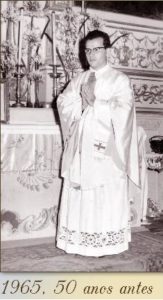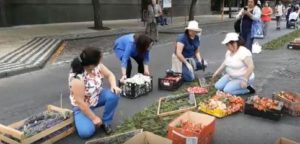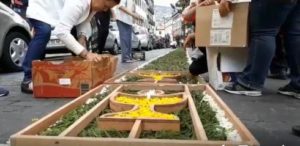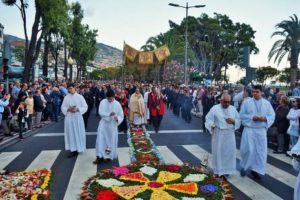FROM MY HEART TO YOUR HEART – An Exciting and Passionate 53 Year Journey – Part 2
Being born poor, very early in life I felt the call to dedicate my life to the poor and the call to alleviate the suffering of the world. Very early in life I fell in love with Jesus and His project. I felt inspired by the «Mission Statement» of Jesus that is: «The Spirit of the Lord is upon me, because he has anointed me to bring good news to the poor. He has sent me to proclaim release to the captives and recovery of sight to the blind, to let the oppressed go free, to proclaim the year of the Lord’s favour». Luke 4: 18.
I finished my Seminary course on 1963. I was surprised, confused and hurt because my two colleagues had been invited to be ordained and I was not. My superiors were just ignoring me, my confusion and my pain. Nobody was talking with me about this strange situation. Until one day, on July 23rd, 1963, my superior called me and said: «You have to put away your priestly career because you are disorganized in doing charity to the poor». Just that. No suggestions and nothing in concrete. Not even an example of my disorganization in helping the poor. Actually he was right. After 53 years of serving the poor I still haven’t learnt how to be organized in my service to the poor. They are my Masters and every day they teach me new things.
I was 25 years old. It seemed that the world had ended for me. It’s because when I entered the Seminary my purpose was not to study my vocation. My only purpose was to be a priest. I felt lost. But I never forgot what my aunt Matilde told me after us crying together. «Don’t worry Bernardino. When men close a door, God opens a gate». It was true. God opened for me a very large gate.
Quitting is not part of my vocabulary. I asked a Bishop in Africa if he could take the risk of accepting me. After waiting for some time he said yes. On March 1st, 1964, I said good-bye to my family and I became a Missionary. Being a Missionary in Africa had always been one of my dreams when I was a young seminarian. Everything started working together. After spending five months in a very poor Mission, the Bishop called me to the city to teach religion in the secondary school and to be in charge of the youth ministry. It was a fascinating experience. Many youth retreats and the creation of the Juvenile Centre mobilized all the youth of the city, Catholics, Protestants, Hindus and Muslims working together and praying together and together helping the poor. Following my Master, the poor have been always the centre of my ministry.
Then a big jump. From one of the poorest countries of the world to one of the wealthiest countries of the world. In 1973 I left Mozambique for a period of vacation in Portugal. Then I visited the USA with a round trip ticket of two weeks. Things changed. Instead of two weeks, I spent 32 years. My Parish was always a point of reference to the poor. Even undocumented immigrants, arriving from Central America, knew about our Parish. They knew that in California there was a Parish that would welcome them. Many of them slept in my garage, in the class rooms, and in the rooms of my residence. They wore my clothes, ate my food in my dining room and took their showers in my bathrooms. It was a fascinating life. It was in my St. Anthony’s Church in California that we started the project “People Helping People”.
In 2006 I came back to Madeira where I was assigned to be the Pastor of a country Parish. After two years I became the chaplain of the Hospital. In 2010 we started in Madeira the project “People Helping People” whose main goal is to mobilize many people to help many people. (Especially those families and people who don’t qualify for help from official institutions, and especially to be an open door when all the other doors close).
Now I am 80 years old and I am celebrating my 53rd Anniversary of priesthood. I don’t know if I have been a good priest. But one thing I know: I have been a very happy priest. If I could go back in life and if I could choose, I would choose the roads I have travelled until now.
«Men closed one door but God opened a gate».
Love and Peace,
Fr. Bernardino Andrade



